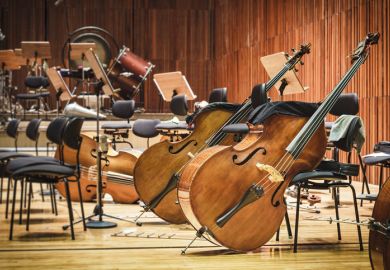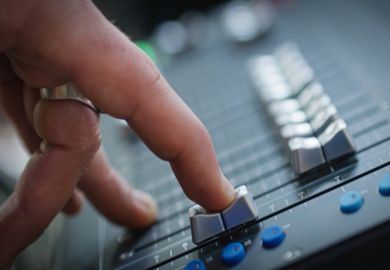THIS is a welcome addition to the relatively large body of work relating to music in Ghana and, within that, to the relatively unbalanced concentration on rhythm. Much of this work erroneously represents rhythm and drumming as synonymous. Kofi Agawu tries to set this right by focusing on rhythms of other performance expressions, and, in particular, on the centrality of language, the underlying approach being that "without African languages, African music would not exist". Within this framework he puts forward a model for conceptualising the domain of rhythmic expression, which suggests that in a linear fashion gesture generates spoken word that in turn generates vocal music, generating instrumental music, generating dance ("stylised gesture").
The main body of the text focuses on rhythms of language, song, drumming and dancing, musical performance and folktale performance. The final chapter summarises the relationships between the different expressions, refining the model by making readers aware of its limitations. Thus Agawu is quick to point out that the rhythmic expressions he defines in his model are not mutually exclusive, but are intertwined: in practice dance drumming rarely excludes song, for example. In addition, each type of expression may have relationships with others that are not defined here. The model, therefore, is useful at only a superficial level, a limitation Agawu himself acknowledges.
One of the primary tasks of ethnomusicologists is to represent the musical expressions of one society to another. This can largely be done with language, but inevitably the decision whether or not to use some form of musical notation must be made. Agawu chooses to use western staff notation "to render the material immediately accessible".
Given that Agawu's analytic tools, the model and his transcriptions, bear little relation to practice, for the reader looking for pure (musical) ethnography, this book may have a limited relevance. The first chapter, however, offers a vivid "fictional ethnography" of Northern Ewe society, describing aspects of life over a 24-hour period. Such a "soundscape" provides a useful way of contextualising the music. Agawu's descriptions conjure up all the familiar images for anyone who has travelled in an African country.
Janet Topp Fargion is curator, International Music Collection, British Library National Sound Archive.
African Rhythm: A Northern Ewe Perspective
Author - Kofi Agawu
ISBN - 0 521 48084 1
Publisher - Cambridge University Press
Price - £45.00
Pages - 217
Register to continue
Why register?
- Registration is free and only takes a moment
- Once registered, you can read 3 articles a month
- Sign up for our newsletter
Subscribe
Or subscribe for unlimited access to:
- Unlimited access to news, views, insights & reviews
- Digital editions
- Digital access to THE’s university and college rankings analysis
Already registered or a current subscriber?



